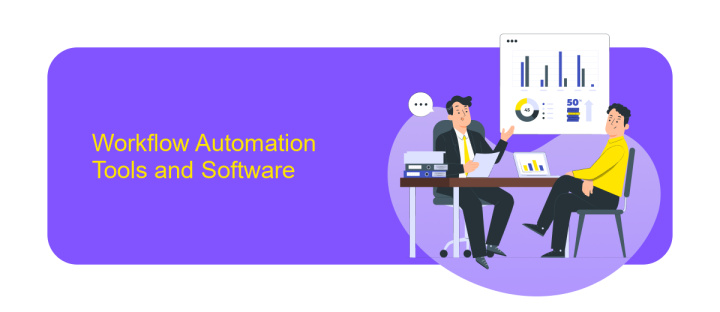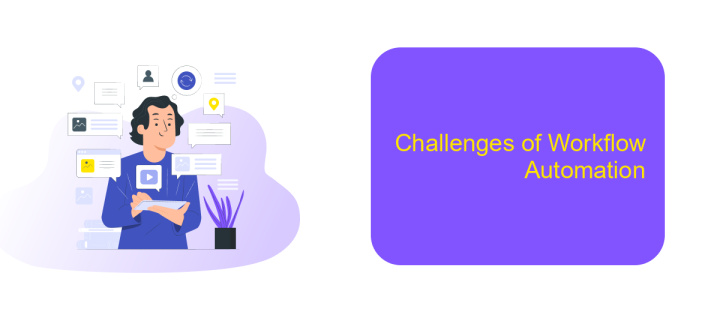Workflow Automation Ideas
In today's fast-paced business environment, workflow automation is key to enhancing efficiency and productivity. By leveraging technology to streamline repetitive tasks, organizations can save time, reduce errors, and focus on strategic initiatives. This article explores innovative workflow automation ideas that can transform your business processes, boost performance, and give you a competitive edge in the market.
Common Workflow Automation Ideas
Workflow automation can significantly enhance productivity by streamlining repetitive tasks and minimizing human error. By automating common workflows, businesses can save time and resources, allowing employees to focus on more strategic activities.
- Email marketing automation: Schedule and send personalized emails to your audience using tools like Mailchimp or HubSpot.
- Customer relationship management (CRM): Automate lead nurturing and follow-ups with platforms like Salesforce or Zoho CRM.
- Social media management: Use tools like Hootsuite or Buffer to automate posting schedules and track engagement.
- Data entry and synchronization: Integrate various applications with services like ApiX-Drive to ensure seamless data transfer between systems.
- Project management: Automate task assignments and deadline reminders with tools like Asana or Trello.
Implementing these automation ideas can lead to more efficient workflows and improved overall performance. By leveraging tools and platforms designed for automation, such as ApiX-Drive, businesses can ensure that their operations run smoothly and effectively, reducing the need for manual intervention and enhancing productivity.
Workflow Automation Tools and Software

Workflow automation tools and software are essential for streamlining business processes and enhancing productivity. Popular tools like Zapier and Integromat allow users to create automated workflows by connecting various applications and services without requiring any coding skills. These platforms enable businesses to automate repetitive tasks, such as data entry, email notifications, and social media posting, thereby saving time and reducing human error.
Another powerful tool for workflow automation is ApiX-Drive, which simplifies the process of setting up integrations between different software applications. With ApiX-Drive, users can easily connect their CRM systems, email marketing platforms, and other business tools to automate data transfers and synchronize information in real-time. This not only improves efficiency but also ensures that all systems are up-to-date and working seamlessly together. By leveraging these automation tools, businesses can focus more on strategic initiatives and less on mundane, repetitive tasks.
Benefits of Workflow Automation

Workflow automation offers numerous advantages that significantly enhance business efficiency and productivity. By automating repetitive tasks, companies can streamline their operations and reduce the likelihood of human error.
- Time Savings: Automation frees up valuable time for employees to focus on more strategic tasks.
- Cost Reduction: By minimizing manual work, companies can lower operational costs and allocate resources more effectively.
- Improved Accuracy: Automated systems reduce the risk of errors, ensuring more reliable and consistent results.
- Enhanced Collaboration: Tools like ApiX-Drive facilitate seamless integration between various services, improving team collaboration and data sharing.
- Scalability: Automation allows businesses to scale their operations effortlessly, adapting to growth without additional strain on resources.
Incorporating workflow automation into your business processes can lead to substantial improvements in efficiency and overall performance. Services like ApiX-Drive can help you integrate and automate various platforms, making it easier to manage and optimize your workflows. By leveraging these tools, companies can stay competitive and agile in an ever-evolving marketplace.
Challenges of Workflow Automation

Implementing workflow automation can significantly enhance business efficiency, but it comes with its own set of challenges. One major hurdle is the initial setup and integration of various systems. Ensuring that all software and tools communicate seamlessly requires a detailed understanding of both the existing processes and the new automation tools.
Another challenge is the resistance to change from employees. People are often comfortable with their established routines and may be hesitant to adopt new automated processes. This can lead to a slower implementation and reduced effectiveness of the automation tools.
- Complex integration processes
- Employee resistance to change
- High initial costs
- Data security concerns
Using services like ApiX-Drive can help mitigate some of these challenges by providing user-friendly integration solutions that simplify the connection between various applications. However, it's crucial to address employee concerns and ensure proper training to maximize the benefits of workflow automation.
Future of Workflow Automation
As technology continues to evolve, the future of workflow automation looks incredibly promising. Artificial Intelligence (AI) and Machine Learning (ML) are expected to play pivotal roles in enhancing the efficiency and accuracy of automated workflows. These technologies can analyze vast amounts of data to identify patterns and make predictions, enabling businesses to streamline operations and make more informed decisions. Additionally, the rise of low-code and no-code platforms will democratize automation, allowing even those without extensive technical skills to create and manage automated processes.
Integration platforms like ApiX-Drive are set to become indispensable tools in this landscape. ApiX-Drive allows businesses to seamlessly connect various applications and services, facilitating smooth data transfer and synchronization. This not only reduces manual effort but also minimizes the risk of errors. As more organizations adopt such solutions, the ability to automate complex workflows across multiple systems will become a standard practice, driving efficiency and productivity to new heights. Overall, the future of workflow automation promises a more connected, intelligent, and efficient business environment.
FAQ
What is workflow automation?
How can I start automating my workflows?
What are the benefits of workflow automation?
Can workflow automation be customized for different industries?
Is it difficult to set up workflow automation?
Apix-Drive will help optimize business processes, save you from a lot of routine tasks and unnecessary costs for automation, attracting additional specialists. Try setting up a free test connection with ApiX-Drive and see for yourself. Now you have to think about where to invest the freed time and money!

